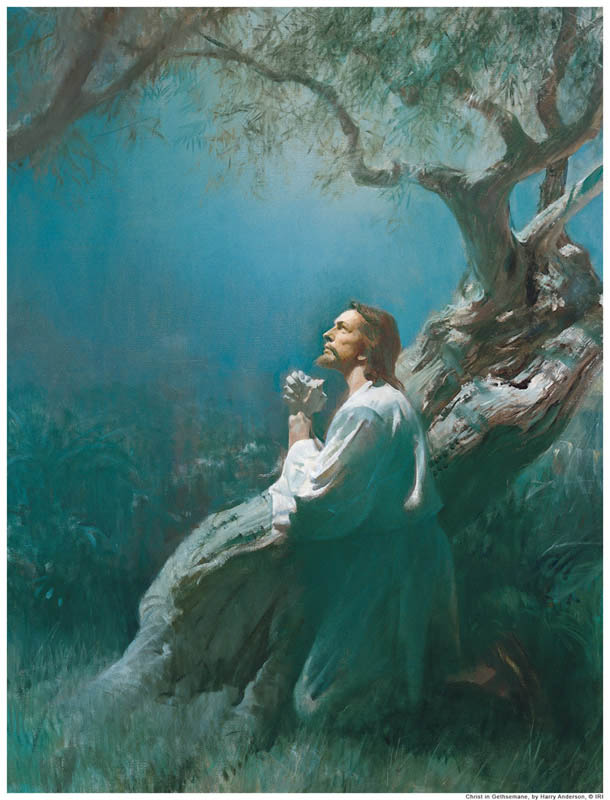A personal response
 Most people are familiar with the sight of Mormon missionaries riding bikes, walking the neighborhoods, or knocking on doors. The men are dressed in suits, white shirts, and ties. They have short hair. The women are in dresses or skirts that fall below the knee. Most are young adults, but some are retired couples. And Mormons don’t wait to get called on missions. Many of them just love to share their beliefs with other people.
Most people are familiar with the sight of Mormon missionaries riding bikes, walking the neighborhoods, or knocking on doors. The men are dressed in suits, white shirts, and ties. They have short hair. The women are in dresses or skirts that fall below the knee. Most are young adults, but some are retired couples. And Mormons don’t wait to get called on missions. Many of them just love to share their beliefs with other people.
The correct name for the Mormon church is The Church of Jesus Christ of Latter-day Saints. Mormon is just a nickname once given Mormons by their enemies, but which Mormons themselves good-naturedly use, on occasion. The centerpiece of the church name explains the love Mormons have for missionary work. It is Jesus Christ’s church and the Bible commands us to share His gospel.
Jesus told His eleven apostles: “Go ye into all the world, and preach the gospel to every creature” (Mark 16:15). While he was only speaking to His apostles at that moment, we know that most of what He told them applies to all of us, because we are all disciples of Jesus Christ.
For Mormons, as for most Christians, sharing the gospel is part of our instructions to love all of God’s children. We know that in Jesus Christ we have something extraordinary that can make others happy. We want to share that amazing something.
There is a story in the Book of Mormon that helps to illustrate this point. A prophet named Lehi had a vision in which he saw a beautiful tree. The tree contained a magnificent fruit that he found tasted better and sweeter than any fruit he had ever before tasted. He discovered that eating the fruit of the tree would bring greater joy to those who ate from it than anything else. This fruit represented the love of God and the gospel. What did Lehi do immediately after experiencing the blessings of partaking of the fruit? He began looking for his family so he could share it with them. When you find something wonderful that can bring great joy, you naturally want to share it with those you love.
This is a typical reaction for those who discover the gospel of Jesus Christ. They realize how much joy and peace it brings to them and they long for others to have what they have. At first, they might begin with those they love most, but in time, they find themselves creating a larger circle of people with whom they’d like to share their blessings.
Another Book of Mormon story concerns a man named Enos. He went into the woods and began to pray for forgiveness of his sins. He was so overcome with the joy he experienced when he received forgiveness that he then prayed for blessings for all of his people. As his heart expanded with joy and love from doing this, he even prayed for his enemies. He wanted them to have the gospel and its blessings as well. The gospel of Jesus Christ has this power. It can fill our hearts so we can love everyone, including our enemies. We are, in fact, commanded to do so:
“But love ye your enemies, and do good, and lend, hoping for nothing again; and your reward shall be great, and ye shall be the children of the Highest: for he is kind unto the unthankful and to the evil (Luke 6:35).
Since these full-time missionaries don’t have to go, don’t get paid to go, and don’t even get to choose where to go…why do they go? Why do older people give up a few years of relaxing retirement to head out into the mission field to work? Why do ordinary Mormons risk rejection and harassment to share their beliefs?
The two stories from the Book of Mormon explain why Mormons do missionary work. Missionary work is an act of love. The missionaries you see on the street or at your door were not forced to go on missions. While men are encouraged to do so and women are permitted to do so, it is not mandatory. The current Mormon prophet, Thomas S. Monson, did not serve a mission as a young man. He was in the Navy, instead. Later, he served as a mission president, overseeing the missionaries in Canada. Today, of course, his work a prophet and president of the Mormons requires him to serve as a special witness of Jesus Christ. However, as a young adult, he did not serve a mission and, clearly, it has not impacted his ability to serve in high church callings.
Mormons share their beliefs because they love Jesus Christ. Many of us are converts to our faith. Because an ordinary Mormon talked about his or her beliefs, or because a missionary knocked on our doors, we found something we’d been searching for our entire lives. Sometimes we didn’t even know religion was the secret to solving the problems we faced, but once we understood how much better our lives were now, we longed to share it with other people. It would be selfish to keep such a “secret” to ourselves, sitting back and watching others lacking something we know they need.
Mormons are taught not to force their beliefs on others. However, if they don’t offer it, the other person has no opportunity to accept or reject the gift. In the years before I became a Mormon, I knew a number of other Mormons. In the way of teenagers, many were too shy to share what they believed, not knowing I was interested. When someone finally did, I wished the others had found the courage to do so. I realize how many years I wasted not knowing how to build a personal relationship with Jesus Christ because people didn’t want to risk offending me. I sometimes get overly excited about sharing my beliefs, but in the end, I know it is up to each individual to make a decision about how to handle the gift I am offering, but it is also my God-given responsibility to offer it respectfully to others, to allow them the choice of accepting or rejecting.
After all, if you had the secret to eternal happiness tucked away in your heart…wouldn’t you share?
The late Terrie Lynn Bittner—beloved wife, mother, grandmother, and friend—was the author of two homeschooling books and numerous articles, including several that appeared in Latter-day Saint magazines. She became a member of the Church at the age of 17 and began sharing her faith online in 1992.






